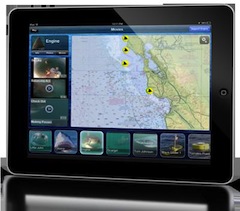Live every week like it's shark week with new tracking robots


Solar-powered surfing robots will soon track Great Whites in the Pacific Ocean and transmit data back to shore. Researchers and shark enthusiasts alike will have access to the findings because those interested in the project can download an app and get updates on shark activity. The app, SharkNet, will provide a map of all the sharks and will also allow users to zero in on a particular one, viewing photos, videos, a 3D model, and where it has been in the past.
The sharks have already been tagged so the robots can track them easily. Named WaveGliders, the robots are self-propelled and float through the water like surfboards--wireless networked surfboards that is. The robots will gather data on any tagged shark that comes within 1000 feet of it and send it back to land. Satellites on the robot help scientists track the predators' location.
"Our goal is to use revolutionary technology that increases our capacity to observe our oceans," said Stanford University marine scientist Barbara Block, who heads the Global Tagging of Pelagic Predators (GOPP) project. This technology takes predator tracking further than satellite observation, which is currently being used. Currently, the network only covers part of the ocean near Northern California, but if it's successful Block hopes to grow it to cover the whole coast of the country.
Related on SmartPlanet:
This post was originally published on Smartplanet.com